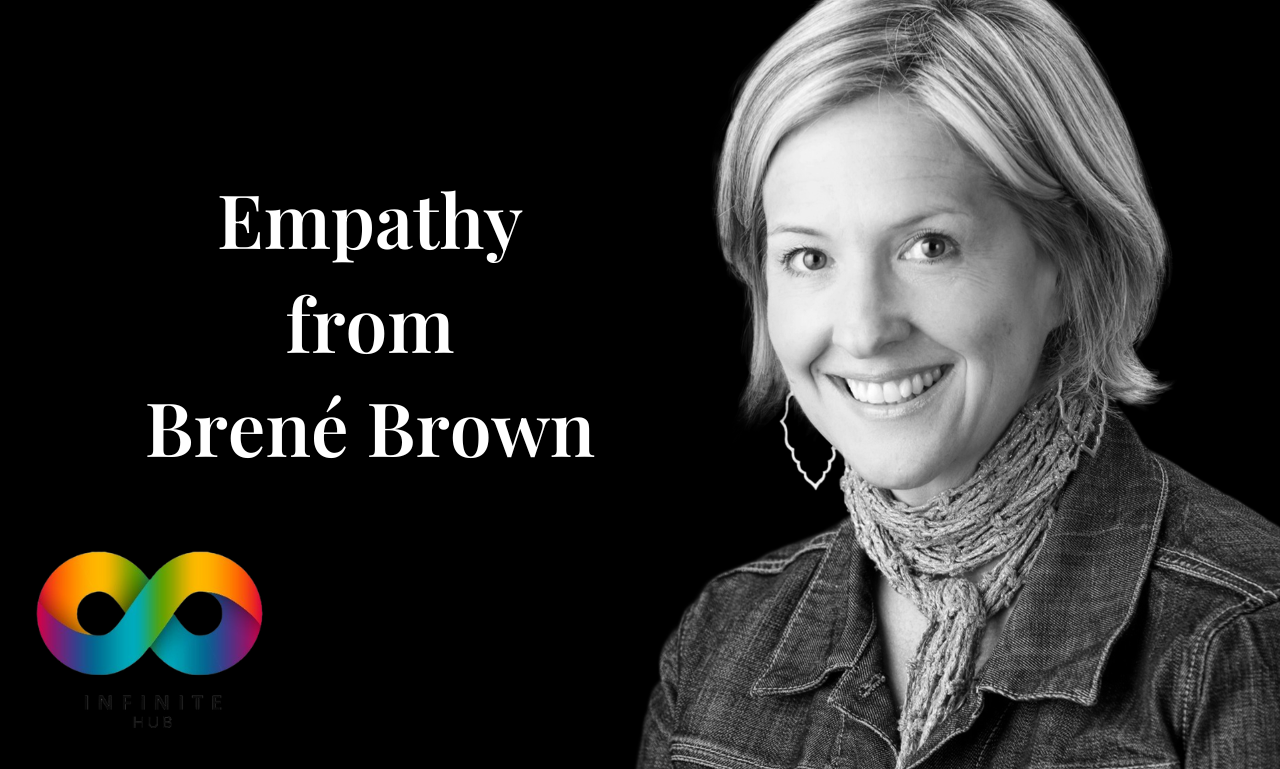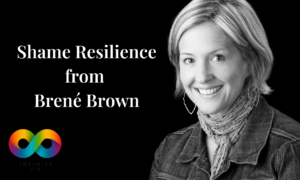Introduction
Empathy is more than just a buzzword; it’s a crucial skill for building meaningful connections and fostering understanding among individuals. Brené Brown, a renowned researcher and storyteller, has dedicated much of her career to studying empathy, vulnerability, and courage. In this article, we delve into the profound insights on empathy from Brené Brown, exploring its definition, importance, and application in various aspects of life.
What is Empathy?
Empathy involves the ability to understand and share the feelings of others. It is about stepping into someone else’s shoes and seeing the world from their perspective. This emotional connection is fundamental in building strong relationships and fostering a sense of community. Empathy goes beyond mere sympathy, which is often more about feeling pity for someone else’s plight without truly understanding their experience.
Brené Brown: A Brief Biography
Brené Brown is a research professor at the University of Houston, known for her extensive work on vulnerability, courage, shame, and empathy. She has authored several bestselling books, including “Daring Greatly” and “Rising Strong.” Brown’s TED Talk on “The Power of Vulnerability” is one of the most viewed talks in the world, highlighting her impact on the public discourse around these critical topics.
Brené Brown’s Research on Empathy
Brown’s research has significantly contributed to our understanding of empathy. Through her studies, she has identified key components that make empathy effective and how it differs fundamentally from other forms of emotional response. Her work emphasizes the importance of vulnerability in truly connecting with others, as well as the necessity of practicing empathy in both personal and professional settings.
The Difference Between Empathy and Sympathy
Understanding the distinction between empathy and sympathy is crucial. While sympathy involves feeling sorrow for someone else’s misfortune, empathy is about experiencing and understanding those feelings as if they were your own. Brené Brown explains that sympathy often drives disconnection, whereas empathy fuels connection and understanding.
The Elements of Empathy According to Brené Brown
Brené Brown identifies four key components of empathy:
- Perspective Taking – seeing the situation from another person’s point of view.
- Staying Out of Judgment – not passing judgment on the person’s feelings or experiences.
- Recognizing Emotion – identifying and acknowledging the emotions of the other person.
- Communicating Understanding – expressing that you understand what the person is going through.
These elements are essential for practicing true empathy and fostering deeper connections.
The Role of Vulnerability in Empathy
Vulnerability is at the heart of empathy. According to Brown, being vulnerable allows us to connect on a deeper level with others. It involves sharing our authentic selves and being open to experiencing the full range of human emotions, which is necessary for truly understanding and empathizing with others.
Empathy in Everyday Life
Empathy plays a crucial role in our daily interactions. Whether it’s listening to a friend, supporting a colleague, or understanding a family member’s struggles, empathy helps us connect and respond in a meaningful way. Practicing empathy can improve our relationships and create a more supportive and understanding environment.
Empathy in Leadership
Effective leadership requires empathy. Leaders who understand and share the feelings of their team members can build stronger, more trusting relationships. Empathetic leadership fosters a positive work culture, increases employee satisfaction, and enhances team performance.
Building Empathy in Relationships
Empathy is the foundation of strong, healthy relationships. By practicing empathy, we can better understand our partners, friends, and family members. This understanding leads to more compassionate and supportive relationships, where individuals feel seen, heard, and valued.
Empathy in the Workplace
Creating a workplace culture of empathy can lead to numerous benefits, including improved employee morale, increased productivity, and better teamwork. Leaders and managers can foster empathy by actively listening to their employees, acknowledging their feelings, and providing support.
Teaching Empathy to Children
Teaching children empathy is essential for their social and emotional development. Parents and educators can model empathetic behavior, encourage children to talk about their feelings, and create opportunities for them to practice empathy with others.
Empathy and Mental Health
Empathy is closely linked to mental health. Understanding and sharing feelings can help reduce feelings of isolation and increase a sense of connection and belonging. Empathetic relationships provide support and validation, which are crucial for emotional well-being.
Barriers to Empathy
Several barriers can hinder our ability to practice empathy, including stress, prejudice, and a lack of awareness. Overcoming these barriers requires self-reflection, mindfulness, and a commitment to understanding others’ perspectives.
Empathy and Self-Care
While empathy is about caring for others, it’s also important to practice self-care. Empathy fatigue can occur when we become overwhelmed by the emotional demands of empathizing with others. Balancing empathy with self-care ensures that we can continue to support others without compromising our own well-being.
The Impact of Empathy on Society
Empathy has the power to transform society by fostering greater understanding and cooperation. When individuals and communities practice empathy, they can address social issues more effectively and create a more compassionate world.
Empathy and Cultural Competence
In our diverse world, empathy is essential for navigating cultural differences. By practicing empathy, we can better understand and appreciate different perspectives, fostering mutual respect and cooperation.
Empathy in Conflict Resolution
Empathy is a powerful tool in resolving conflicts. By understanding each party’s feelings and perspectives, empathetic mediators can facilitate more effective and amicable resolutions.
Empathy and Communication
Effective communication relies heavily on empathy. Understanding and acknowledging the emotions behind the words can lead to more meaningful and productive conversations.
The Neuroscience of Empathy
Scientific research has shown that empathy involves specific neural pathways in the brain. Understanding the neuroscience behind empathy can provide insights into how we can enhance our empathetic abilities.
Empathy in Healthcare
Empathy is crucial in healthcare settings. It improves patient outcomes by fostering trust and understanding between healthcare providers and patients. Empathetic care can lead to better patient satisfaction and adherence to treatment plans.
Empathy and Technology
While technology can sometimes create distance, it also has the potential to foster empathy. Digital tools and social media can connect people across the globe, allowing for greater understanding and shared experiences.
Empathy Fatigue
Empathy fatigue, or burnout, can occur when individuals are overwhelmed by the emotional demands of empathizing with others. Recognizing the signs and taking steps to manage it is essential for maintaining emotional health.
Empathy Exercises and Practices
There are numerous exercises and practices to cultivate empathy, such as active listening, perspective-taking activities, and mindfulness meditation. Regularly engaging in these practices can enhance our ability to empathize with others.
Books and Resources on Empathy
Many books and resources offer valuable insights into empathy. Brené Brown’s works, including “Daring Greatly” and “The Gifts of Imperfection,” are excellent starting points for those looking to deepen their understanding of empathy.
Case Studies of Empathy in Action
Real-life examples demonstrate the power of empathy. From leaders who transform organizations to everyday individuals who make a difference in their communities, these case studies highlight the impact of empathy in action.
Empathy and Social Justice
Empathy is crucial in promoting social justice. By understanding and sharing the experiences of marginalized groups, we can work towards greater equity and inclusion in society.
Critiques of Empathy
While empathy is widely praised, it is not without its critics. Some argue that empathy can be biased and lead to emotional exhaustion. Addressing these critiques is important for a balanced understanding of empathy.
Future of Empathy Research
Research on empathy is continually evolving. Emerging trends and new areas of study promise to deepen our understanding of this complex and vital human trait.
Conclusion
Empathy is a powerful force that can transform our personal relationships, professional interactions, and society as a whole. By understanding and practicing empathy, we can foster deeper connections, greater understanding, and a more compassionate world.
FAQs
How does Brené Brown define empathy? Brené Brown defines empathy as the ability to understand and share the feelings of another person. It involves perspective-taking, staying out of judgment, recognizing emotions, and communicating understanding.
Why is empathy important in leadership? Empathy in leadership builds trust, enhances communication, and fosters a positive work environment. Leaders who practice empathy can better understand and support their team members, leading to improved performance and satisfaction.
What are the barriers to empathy? Common barriers to empathy include stress, prejudice, and lack of awareness. Overcoming these barriers requires self-reflection, mindfulness, and a commitment to understanding others’ perspectives.
How can empathy be taught to children? Empathy can be taught to children by modeling empathetic behavior, encouraging them to talk about their feelings, and creating opportunities for them to practice empathy with others.
What is empathy fatigue? Empathy fatigue occurs when individuals become overwhelmed by the emotional demands of empathizing with others. It can lead to burnout and emotional exhaustion, making it important to balance empathy with self-care.
How does empathy impact mental health? Empathy impacts mental health by reducing feelings of isolation and increasing a sense of connection and belonging. Empathetic relationships provide support and validation, which are crucial for emotional well-being.
Conclusion
Empathy, as highlighted by Brené Brown, is an essential element in building meaningful and supportive connections. Understanding and practicing empathy can transform our interactions, enhance leadership, and foster a more compassionate society. By embracing empathy, we pave the way for a better, more understanding world.



